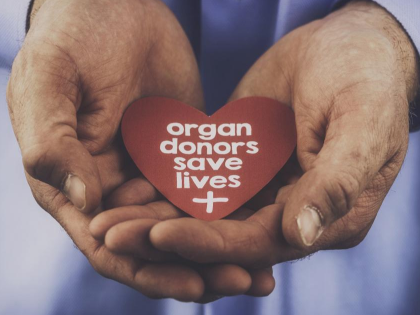Panvel: 65-Year-Old Donor Saves Two Lives After Brain-Death
By Amit Srivastava | Updated: November 18, 2024 16:07 IST2024-11-18T16:03:53+5:302024-11-18T16:07:29+5:30
A 65-year-old Panvel resident, declared brain-dead after suffering a hemorrhagic stroke, gave a new lease of life to two ...

Representative Image
A 65-year-old Panvel resident, declared brain-dead after suffering a hemorrhagic stroke, gave a new lease of life to two patients—a 59-year-old woman at Fortis Hospital, Mumbai, and a 55-year-old man at Nanavati Max Hospital, Mumbai—through organ donation.
The donor collapsed at home, and medical investigations revealed a brain bleed. The family rushed him to Apollo Hospitals Navi Mumbai (AHNM), which offers advanced care facilities. Despite the team's best efforts, the patient’s condition remained critical, with significant brain damage.
Recognizing the severity of the situation, the medical team at AHNM counseled the grieving family about their options, which included continuing supportive care or contributing to the noble cause of organ donation.
Initially hesitant, the family eventually chose to support organ donation. Reflecting on the decision, the donor’s son shared, “We were not ready to accept our father’s condition. We wanted to do everything to keep him with us, even if it meant he remained in a comatose state. But the emotional toll made us reconsider. When we thought about saving others through his organs, we found comfort in knowing our father could live on in others. All our family members supported this decision. Today, I believe that just as people prepare their wills or funeral arrangements, they should also consider registering as organ donors.”
Organ donation is an urgent need. In 2022, an estimated 1.5–2 lakh people required kidney transplants, but only about 10,000 were performed. Similarly, fewer than 3,000 liver transplants and just 250 heart transplants took place, despite 80,000 patients needing a liver and 10,000 a heart.
Raising awareness and encouraging organ donor registration is critical to addressing the growing demand for life-saving transplants for end-stage kidney, liver, and heart diseases.
Open in app